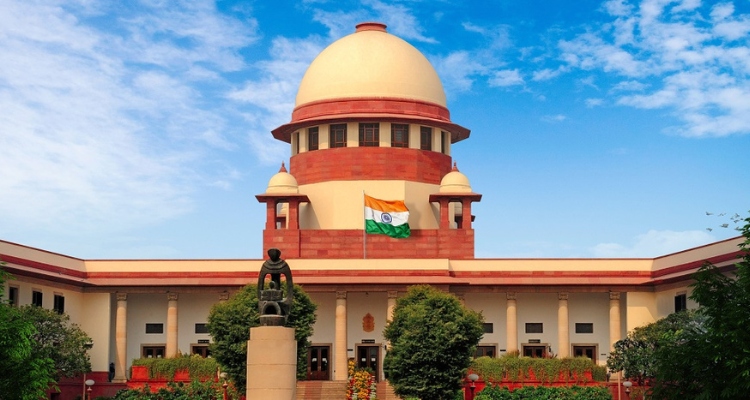
A public interest litigation has been filed in the Supreme Court on Thursday challenging the newly amended criminal law bills: Bharatiya Nyaya Sanhita, 2023, Bharatiya Sakshya Adhiniyam, 2023, and Bharatiya Nagarik Suraksha (Second) Sanhita, 2023.
The petitioners, Anjali Patel and Chhaya, represented by advocates Sanjeev Malhotra and Kunwar Siddhartha, have requested the court to issue a notice for the immediate formation of an expert committee.
This committee would assess and determine the viability of these new laws, which aim to overhaul the country’s criminal laws by replacing the Indian Penal Code (1860), Code of Criminal Procedure, and Indian Evidence Act (1872).
The petition seeks to stay the implementation of the three new criminal laws until a thorough evaluation is conducted. According to the plea, the proposed bills have several defects and discrepancies.
“The above-proposed Bills were withdrawn and new Bills were produced with some changes. These were passed by the Parliament on 21st December 2023 and were published in the Gazette Notification on 25th December 2023, and all of them have now assumed the position of an Act,” the plea stated.
Petition Says…
The petition emphasizes that this is the first time such significant changes have been made to criminal laws at this level. It argues that although the old colonial laws have been amended, the main symbol of colonial rule—the police system—has remained largely unchanged and requires comprehensive reforms.
The Bharatiya Nyaya Sanhita retains most offences from the Indian Penal Code, 1860, while introducing community service as a form of punishment. Notably, sedition is no longer an offence; instead, a new offence for acts endangering the sovereignty, unity, and integrity of India has been added.
The Sanhita also includes terrorism as an offence, defining it as an act intended to threaten the country’s unity, integrity, and security, intimidate the general public, or disturb public order. Organised crime, including kidnapping, extortion, and cyber-crime committed on behalf of a crime syndicate, has also been added as an offence.
Additionally, petty organised crime is now an offence, and murder by a group of five or more persons based on identity markers such as caste, language, or personal belief will carry penalties ranging from seven years to life imprisonment or death.
More In The Case
The petition also highlights concerns about the new laws allowing up to 15 days of police custody, which can be authorized in parts during the initial 40 or 60 days of the 60 or 90-day period of judicial custody. This provision, the petitioners argue, could lead to the denial of bail for the entire period if the police have not exhausted the 15 days of custody.
Moreover, the plea points out irregularities in the passing of the bills in Parliament, noting that many members of Parliament were suspended, resulting in minimal participation and no debate on the elements of the bills, leaving no room for challenges.




